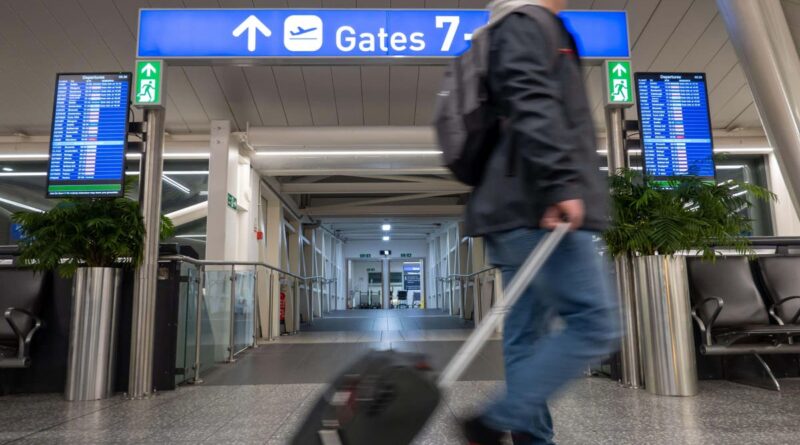US airlines are now required to give speedier refunds for canceled flights. Here’s how it works
Your support helps us to tell the story
This election is still a dead heat, according to most polls. In a fight with such wafer-thin margins, we need reporters on the ground talking to the people Trump and Harris are courting. Your support allows us to keep sending journalists to the story.
The Independent is trusted by 27 million Americans from across the entire political spectrum every month. Unlike many other quality news outlets, we choose not to lock you out of our reporting and analysis with paywalls. But quality journalism must still be paid for.
Help us keep bring these critical stories to light. Your support makes all the difference.
The US Department of Transportation has issued new rules requiring airlines to automatically issue refunds for delayed flights.
On Monday (October 28), Transportation Secretary Pete Buttigieg announced that airlines are officially required to provide automatic refunds within a few days for canceled flights and “significant” delays. The new policy went into effect that same day.
“Passengers are entitled to a refund if their flight is canceled or significantly changed, and they do not accept the significantly changed flight, rebooking on an alternative flight, or alternative compensation,” the rule states.
The new regulation, which was proposed back in April, also applies to refunds of checked bag fees if the bag isn’t delivered within 12 hours for domestic flights or 15 to 30 hours for international flights. What’s more, airlines in the US are entitled to refund passengers for any fees paid for an extra service, such as WiFi, seat selection, or in-flight entertainment.
Under previous regulations, it was up to airlines to decide how long a delay must last before triggering refunds. Now, the administration’s new policy has shared its own definition of a significant delay – lasting at least three hours for domestic flights and six hours for international ones.
Some airlines also offered customers a travel credit or voucher for canceled flights, instead of getting their money back. However, airlines and ticket agents must now issue refunds within “seven business days of refunds becoming due for credit card purchases and 20 calendar days for other payment methods.”
These refunds must also be made in full and in cash, or whatever original payment method used to make the flight ticket purchase, such as credit card or airline miles.
Although the new regulation has been praised by consumers throughout the US, the move has since faced pushback from the airline industry.
Airlines for America, a trade group for large US carriers, noted that refund complaints to the Transportation Department have fallen sharply since mid-2020. A spokesperson for the group said airlines “offer a range of options – including fully refundable fares – to increase accessibility to air travel and to help customers make ticket selections that best fit their needs.”
The group said the 11 largest US airlines issued $43 billion in customer refunds from 2020 through 2023.
The American Society of Travel Advisors (ASTA) also came out against the ruling when it was proposed in April, arguing that it unfairly burdens small travel agencies.
Additional reporting from AP.




